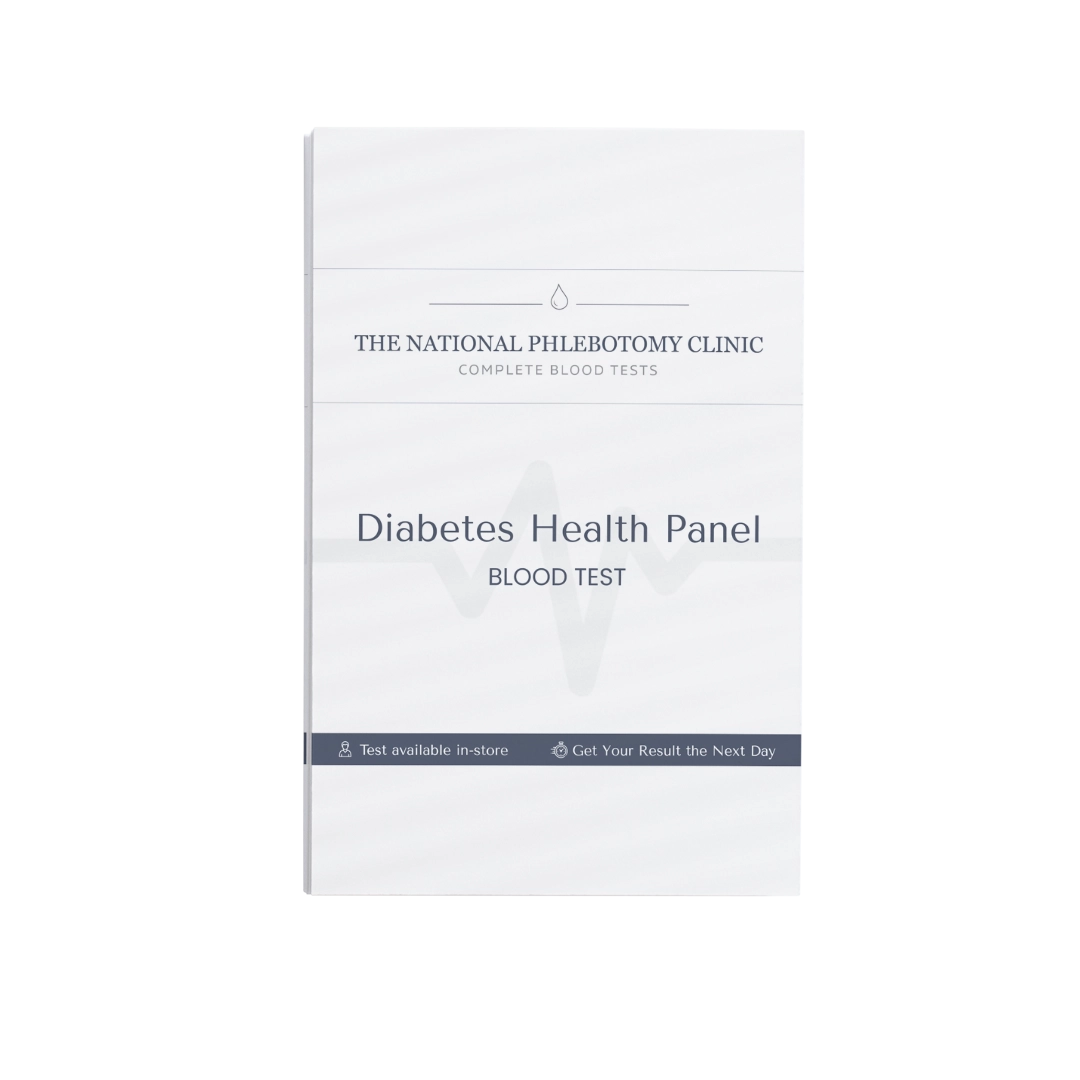My Store
Diabetes Risk Profile
Diabetes Risk Profile
Struggling with unexplained fatigue, weight changes, increased thirst, or frequent urination? These could be signs of insulin resistance or developing diabetes. The Diabetes Health Panel is specifically designed to evaluate your body’s ability to regulate blood sugar, detect early signs of type 1 or type 2 diabetes, and monitor the impact of lifestyle or medications on your metabolic function.
Couldn't load pickup availability




-
Diabetes Health
- Glucose
- HbA1c
- Insulin
- C-peptide

Why Needs Diabetes Health Panel?
Early-stage diabetes often goes unnoticed until complications develop. This panel screens critical markers of blood glucose control, insulin production, kidney filtration, and electrolyte balance. Whether you're at risk, managing an existing diagnosis, or simply tracking your metabolic health, the Diabetes Health Panel empowers proactive decision-making to prevent long-term damage.
Why Choose Clinic-Based Blood Testing?
-

Accurate Results
Samples are collected by trained professionals for precise, lab-quality outcomes.
-

Fast Health Insights
Quick, In-clinic testing enables early detection and faster follow-up care.
-

Expert Oversight
Healthcare staff guide the process and help interpret your results.
-

Nationwide Access
Convenient locations across the UK through The National Phlebotomy Clinic.
FAQs
Collapsible content
Who should consider the Diabetes Health Panel?
Anyone with a family history of diabetes, prediabetes, obesity, or related symptoms like fatigue, frequent urination, or slow wound healing should consider this test.
Can this panel detect prediabetes?
Yes. It includes key indicators that can identify insulin resistance and blood sugar dysregulation before full-blown diabetes develops.
Do I need to fast before taking this test?
Fasting may be recommended for more accurate glucose and insulin measurements. Your clinician will advise depending on your test schedule.
What’s the benefit of testing kidney function with diabetes markers?
Diabetes can impact kidney function over time. Including kidney markers helps assess if any damage is occurring early.
How often should I repeat this test?
If you’re at risk or monitoring an ongoing condition, testing every 3–6 months is advised. Otherwise, an annual check can help maintain health oversight.
Subscribe to our emails
Be the first to know about new collections and exclusive offers.








